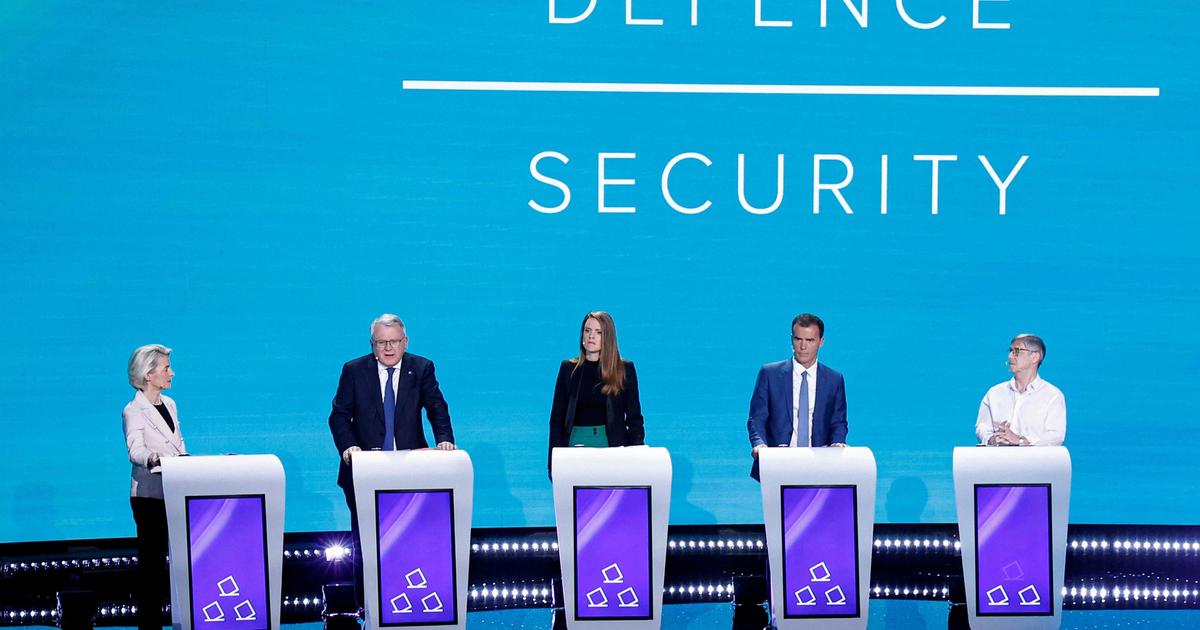European Parliamentary Debate Highlights Policy Divisions Ahead of Elections
In a crucial yet polite exchange hosted at the European Parliament in Brussels, five key candidates, known as 'Spitzenkandidaten,' discussed six major themes including immigration, innovation, and defense. The candidates were Ursula von der Leyen from the European People's Party (EPP), Nicholas Schmit from the Socialists and Democrats (S&D), Sandro Gozi from Renew, Terry Reintke from the Greens, and Walter Baier from The Left. The debate, however, did not bring any groundbreaking insights or intense confrontations, unlike the more heated national elections in countries like France.
A significant part of the discussion centered around the role of the extreme right in the European elections. Despite not being present in the debate, right-wing populist groups received considerable attention. Candidates took turns to criticise or defend potential alliances with these formations. Nicholas Schmit, the socialist candidate, firmly stated his position against forming any agreements with extreme-right groups, including the Brothers of Italy led by Giorgia Meloni. His stance was clear: 'No alliance or agreement with the extreme right.'
Ursula von der Leyen was notably ambiguous on this matter. While she explicitly rejected alliances with certain ultra-right groups like Marine Le Pen's National Group, she praised Giorgia Meloni, calling her 'pro-European' and supportive of the rule of law. This has sparked further debate on where the German conservative stands on future coalitions.
Sandro Gozi also faced scrutiny for aligning with far-right groups in the Netherlands. Walter Baier criticized Gozi's liberal stances, aligning them too closely with Eurosceptic groups. Baier stated, 'You cannot open yourself to them; you have to fight them,' emphasizing the necessity for pro-European unity.
Although the Spitzenkandidaten system aims to provide direct political representation, it has been under scrutiny since von der Leyen's nomination in 2019, which bypassed the traditional list system. With European Parliament elections approaching from June 6-9, the pro-European coalitions of EPP, S&D, and Renew face challenges in maintaining their hold amid the rising influence of right-wing groups.
The debate not only underscored existing divisions but also brought to light the potential reshaping of the Parliament’s future policy directions. With the looming elections, questions about forming coalitions and compromising on European ideals will remain at the forefront.
- Notably absent from the debate were representatives from the European Conservatives and Reformists (ECR) and Identity and Democracy groups, further highlighting the fragmented nature of the current political landscape. Predictions indicate that these groups could gain more traction in the upcoming elections, potentially altering the balance of power within the European Parliament.
- Despite these predictions, Ursula von der Leyen has not entirely ruled out future alliances with select members of the ECR, particularly with Giorgia Meloni’s Brothers of Italy. This has opened up a discourse on whether pragmatic alliances could undermine the strict pro-European stance traditionally held by the main political groups in the Parliament.
- The debate also raised critical conversations about the relevance and functionality of the Spitzenkandidaten system in modern European politics. The system's credibility was questioned, especially since von der Leyen's current presidency did not emerge from this candidate selection process. The efficacy and future of this system might see rigorous evaluations moving forward.






